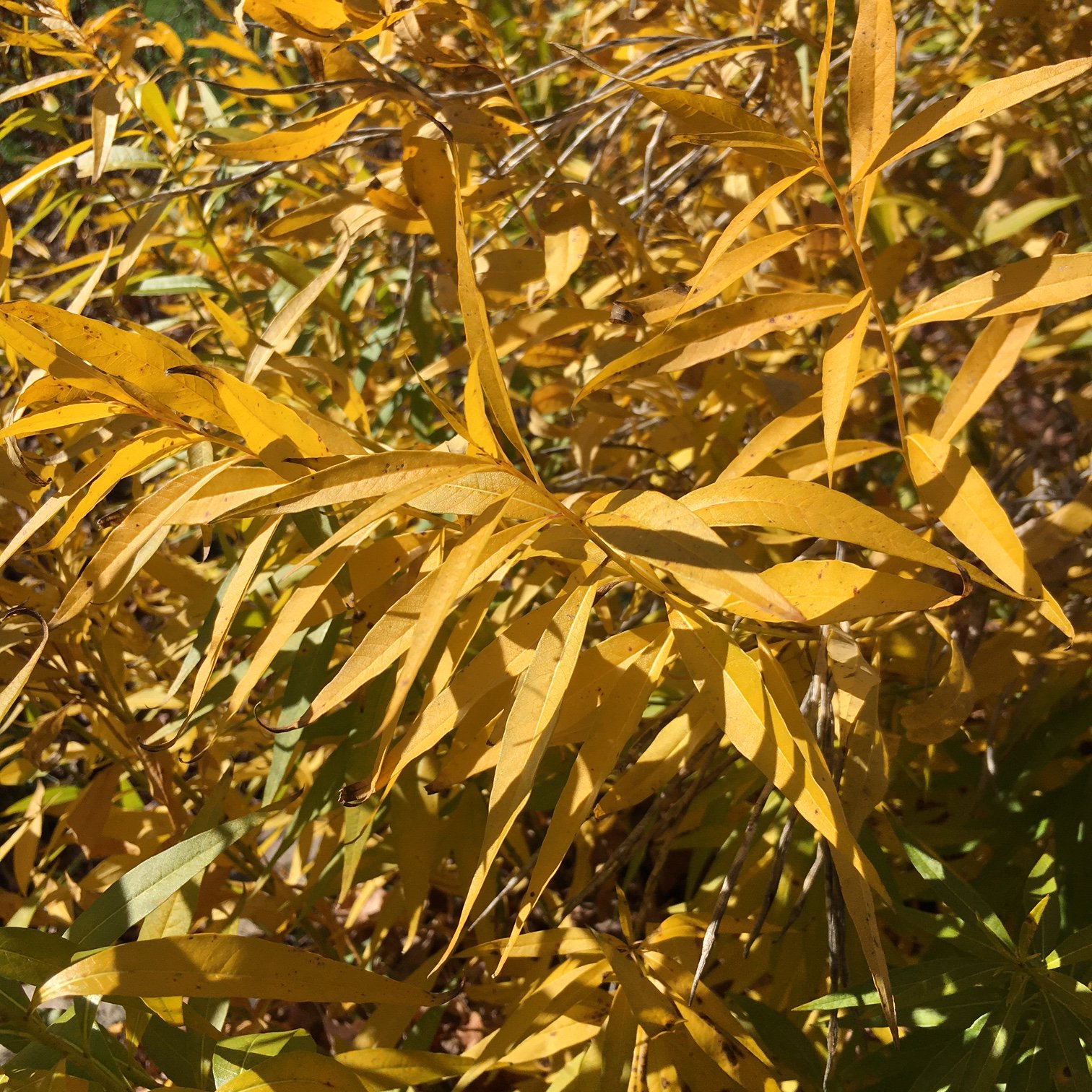HABIT
Height: 3-5’
Bloom Time: spring
SITE CONDITIONS
Light: sun, part shade
Soil: medium-wet, average, medium-dry
CULTIVATION TIPS
Establishment: slow to size up initially, but extremely reliable and long-lived once established
Deer Resistance: very high
INTERACTIONS
Pollinator Support: moderate
CONSERVATION
Native Range: Mid-Atlantic, Southeast, lower Midwest
Seed Propagated: yes

